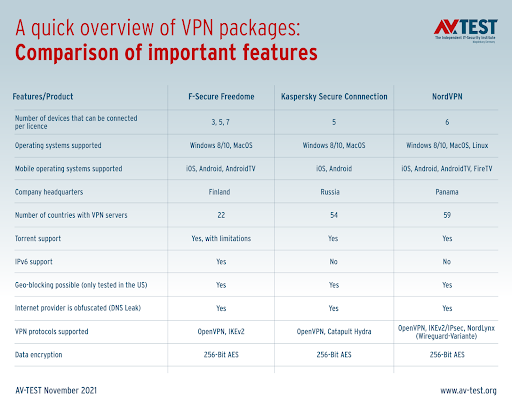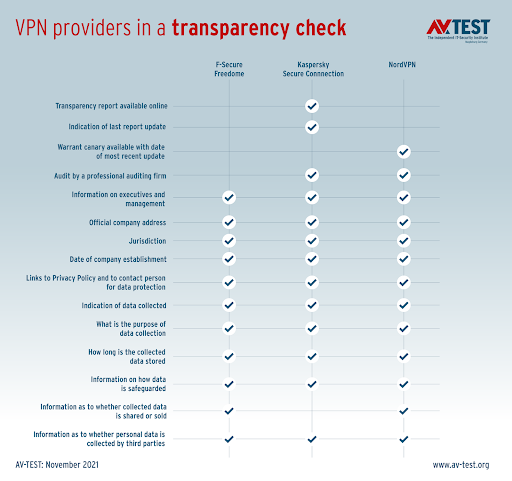AV-TEST recently conducted a test across multiple VPN services, with the intention of analyzing which one proved to be most effective at its task of maintaining online privacy while being efficient to use.
VPNs are pretty commonplace nowadays, which is honestly a far stretch from their presence no more than a few years ago. One would expect that the reason for this stems from a generally raised awareness regarding cybersecurity threats online, and how one has to protect themselves not just from cybercriminals but from even their own social media platforms and cookies. However, the reality is a bit more mundane: people usually just keep them around so they can access regionally-blocked content. Which, fine, is also a legitimate reason to use VPNs, far be it from me to gate-keep any form of online security, no matter the reason for utilizing it. VPNs have come so far that they can be freely accessed in different browsers, such as Opera or DuckDuckGo. Apple’s even working on their own version of the technology, affording users more online security (and infuriating Meta in the process, which is always nice). However, VPNs also come with their own slew of issues, mostly boiling down to hindrances in performance. Some are too slow, videos take forever to buffer under them, some aren’t as security-conscious as they claim to be, and so on and so forth.
Taking interest in the matter, AV-TEST decided to, well, conduct a test and see which VPNs work best and truly deliver on their promises. For this study, the firm decided to do a comparative analysis between three separate VPN packages, namely F-Secure Freedome, Kaspersky Secure Connection, and the YouTube sponsor darling NordVPN. All three were judged on a five-criteria system, with usability, speed, privacy, transparency, and security being our major metrics. With all of this established, the work began and each of the different metrics were measured. Overall, it seemed that all three packages subscribed to some amount of good practices, with F-Secure Freedome typically lagging behind the most of the three. Under performance tests, all three performed best with local servers; however, NordVPN clearly outperformed both F-Secure Freedome and Kaspersky, with the latter placing a rather close second place. Both Kaspersky and Nord also ticked the same number of boxes in the transparency checklist, with the former having a slight advantage due to its transparency reports being published online and therefore being more accessible.
Overall, in terms of latency, speed, and performance, NordVPN does seem to have a slight edge over its fellow competitors, with Kaspersky still being a strong choice, and F-Secure Freedome being a manageable one. Check out these charts for more insights:
Read next: Over 900 App Publishers Cross One Million Dollar Revenue Milestone in 2021
VPNs are pretty commonplace nowadays, which is honestly a far stretch from their presence no more than a few years ago. One would expect that the reason for this stems from a generally raised awareness regarding cybersecurity threats online, and how one has to protect themselves not just from cybercriminals but from even their own social media platforms and cookies. However, the reality is a bit more mundane: people usually just keep them around so they can access regionally-blocked content. Which, fine, is also a legitimate reason to use VPNs, far be it from me to gate-keep any form of online security, no matter the reason for utilizing it. VPNs have come so far that they can be freely accessed in different browsers, such as Opera or DuckDuckGo. Apple’s even working on their own version of the technology, affording users more online security (and infuriating Meta in the process, which is always nice). However, VPNs also come with their own slew of issues, mostly boiling down to hindrances in performance. Some are too slow, videos take forever to buffer under them, some aren’t as security-conscious as they claim to be, and so on and so forth.
Taking interest in the matter, AV-TEST decided to, well, conduct a test and see which VPNs work best and truly deliver on their promises. For this study, the firm decided to do a comparative analysis between three separate VPN packages, namely F-Secure Freedome, Kaspersky Secure Connection, and the YouTube sponsor darling NordVPN. All three were judged on a five-criteria system, with usability, speed, privacy, transparency, and security being our major metrics. With all of this established, the work began and each of the different metrics were measured. Overall, it seemed that all three packages subscribed to some amount of good practices, with F-Secure Freedome typically lagging behind the most of the three. Under performance tests, all three performed best with local servers; however, NordVPN clearly outperformed both F-Secure Freedome and Kaspersky, with the latter placing a rather close second place. Both Kaspersky and Nord also ticked the same number of boxes in the transparency checklist, with the former having a slight advantage due to its transparency reports being published online and therefore being more accessible.
Overall, in terms of latency, speed, and performance, NordVPN does seem to have a slight edge over its fellow competitors, with Kaspersky still being a strong choice, and F-Secure Freedome being a manageable one. Check out these charts for more insights:
Read next: Over 900 App Publishers Cross One Million Dollar Revenue Milestone in 2021



